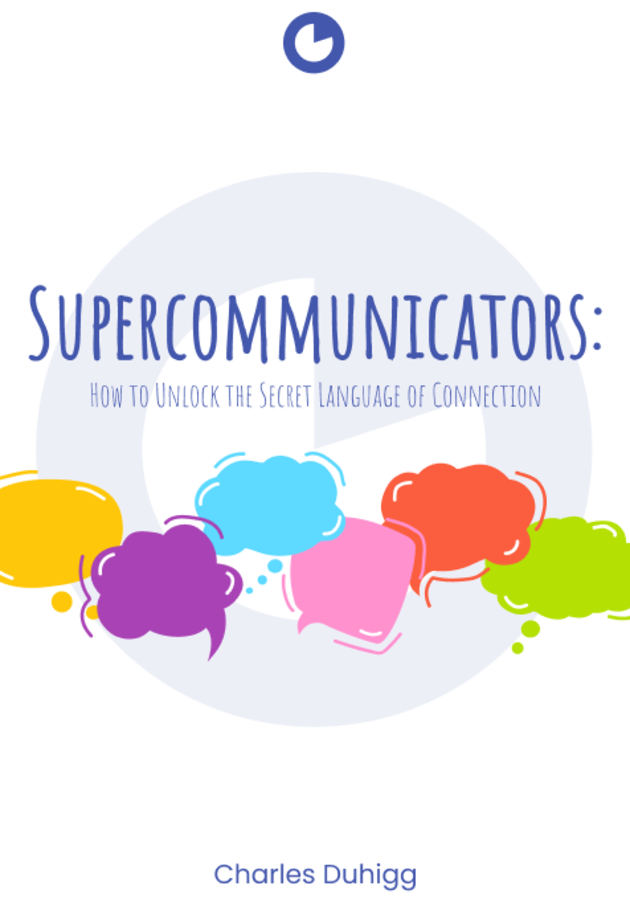Born Gloria Jean Watkins in 1952 in segregated Hopkinsville, Kentucky, bell hooks was a renowned author, feminist, and social activist whose work has had a profound impact on contemporary thought. She adopted the pen name "bell hooks" (written always in lowercase letters) in honor of her maternal grandmother, whom she once described as a powerful figure in her life. hooks was known for her shrewd and sharp analyses of race, gender, and class in American society, and her work has been influential in shaping contemporary feminist and anti-racist movements.
In her 2000 classic "All About Love: New Visions," she offers a powerful and insightful exploration of the many ways in which love manifests in our lives. Drawing on personal anecdotes, cultural commentary, and feminist theory, hooks challenges readers to reconsider their assumptions about what love is, how it operates, and why it matters. With a focus on the ways in which love can be a force for social change and personal growth, "All About Love" offers a hopeful and inspiring vision of a world transformed by love.
So, get ready to be challenged, inspired, and moved by hooks' profound insights into the nature of love and its transformative power.
The despairing, hopeless, everlasting search for love
When bell hooks first walked to her teaching job at Yale University in 1985, she couldn’t help but notice the following declaration on the construction walls next to the campus, “The search for love continues even in the face of great odds.” Painted in bright colors and surrounded by childlike drawings of unidentifiable animals, the message quickly became hooks’ guiding principle, her anchor even, as she had just separated from a partner of more than a decade. Years later, when the message was painted over by the construction company, hooks did her best to locate the local artist. When she found him, he gave her four snapshots of the graffiti art; the snapshots hung above hooks’ kitchen sink to her dying day, to serve her as a reminder that “we yearn for love—that we seek it—even when we lack hope that it really can be found.”
Yet, this is not what the young people of today believe in. The Beatles could unabashedly proclaim, back in the hippie 1960s, that all you need was love, but today's youth seem to have a far more cynical Beyoncé-styled-middle-fingers-up view of love and relationships. Many are simply disillusioned by the superficiality and disposability of modern dating culture, and have given up trying to form lasting connections in a world that prioritizes individualism and self-gratification. A scene from the 2009 genre-bending romcom, “(500) Days of Summer,” captures this sentiment perfectly. Reacting to the overt cynicism of Summer, his love interest, the main protagonist of the movie, Tom, asks her, “But what happens if you fall in love?” Summer asks him back, “You don't believe that, do you?” “It's love. It's not Santa Claus,” says Tom. “Well, what does that word even mean?” cries Summer. “I’ve been in relationships, and I don’t think I’ve ever seen it... Face it, there’s no such thing as love. It’s a fantasy.”
Indeed, as hooks remarks, in today’s popular culture, love has become the stuff of fantasy. “Maybe,” writes hooks, “this is the reason that men have done most of the theorizing about love. Fantasy has primarily been their domain, both in the sphere of cultural production and in everyday life. Male fantasy is seen as something that can create reality, whereas female fantasy is regarded as a pure escape. Hence, the romance novel remains the only domain in which women speak of love with any degree of authority.” With “All About Love,” hooks aimed to change this. By examining, critically, the impact of patriarchy, capitalism, and other oppressive systems on our relationships, she challenged her readers to confront their own biases and assumptions, and work toward building more just and equitable communities. The starting point? Well, Summer’s question from above—what does the word "love" even mean?
Getting some clarity: the meaning of love
Considering how cynical the world has become, we surely tend to use the word “love” quite frivolously. We love our parents and our partners, but we also looove our Netflix shows and TikTok videos—and even our bikes, iPods, or Skechers (that’s, of course, only when we don’t have a Prada backpack). However, when a word gets used too often, its meaning can become diluted, and it can lose its power. There’s a reason why the Ancient Greeks used no less than six different words for love, each describing a different type of relationship. These different types of love include “eros,” which is sexual love; “agape,” which is unconditional, selfless, charitable love; “philia,” which is affectionate, friendship love; “storge” which is familial love, “pragma” which is practical love, and “ludus” which is playful or flirtatious love.
By recognizing and defining these different types of love, the Greeks were able to articulate and navigate the complexities and nuances of human relationships more effectively. In contrast, modern society tends to view love as a one-size-fits-all emotion, with little distinction between the love we feel for our partners, friends, and even material possessions. This oversimplification of love can lead to misunderstandings, unmet expectations, and ultimately, heartbreak. For this reason, any discussion about love must begin with a shared definition of the word. The one hooks prefers comes from M. Scott Peck’s classic 1978 self-help book “The Road Less Traveled.” It goes like this: “Love is the will to extend one’s self for the purpose of nurturing one’s own or another’s spiritual growth.” Love is, furthermore, “an act of will—namely, both an intention and an action… We do not have to love. We choose to love.”
In other words, love isn’t a noun, but a verb. It isn’t just a feeling, a sentiment, or a commodity that can be bought and sold—it is an action, it is something that we do, something we can back up. Love is a practice that requires effort and commitment. This means actively working to dismantle the systems of oppression and domination that undermine love and prevent us from forming meaningful connections with others. For hooks, love is not a passive feeling, but a radical act of resistance that has the power to transform individuals and society as a whole. “To truly love,” she writes, “we must learn to mix various ingredients—care, affection, recognition, respect, commitment, and trust, as well as honest and open communication.” Love unites these—not only is it an action, but also a challenging, complex action.
The battle between the sexes: love, dominance, and mutuality
There is a poem by English Romantic poet William Blake titled, simply, “The Clod and the Pebble,” in which the nature of love is examined by way of conversation between a brook pebble and a clod of clay. For the clod of clay—which, by the way, is described as trodden down by cattle’s feet—love is the antidote to arrogance and narcissism, as it does not seek to please its self, preferring to giving that “self” to someone else, generously and entirely. The pebble—hardened and, well, stony—begs to differ. Love, it replies, “seeks only self to please, to bind another to its delight: it joys in another’s loss of ease, and builds a heaven in hell’s despite.” Though hooks never mentions this poem in her book, one can argue that it serves as the perfect illustration for her understanding of how society shapes men’s and women’s views on love.
Women, just like that clay of clod, have been downtrodden for centuries, and taught to accept nurturance as their most natural, most inherent quality. They are born to be mothers, after all, so they are seemingly better suited (biologically, even!) to take care of someone else’s needs. At a later age, these needs are their children’s; before that, it’s only natural that they are partner’s, isn’t it? Contrariwise, men are taught, from a very early age, to never show—or even have—any gentle, soft feelings. When boys talk about girls with each other, they don’t talk about buying them flowers or writing them sonnets—they talk about what they will do to them in the bedroom, or anywhere else, for that matter. Setting aside everything else, such unkind words turn relationships into a power struggle. And love can’t exist in the middle of one.
“If men were socialized to desire love as much as they are taught to desire sex,” writes longingly hooks, “we would see a cultural revolution.” Unfortunately, “most men tend to be more concerned about sexual performance and sexual satisfaction than whether they are capable of giving and receiving love.” To make matters worse, the men who aren’t like that receive almost no support from their peers and are casually and publicly described as being “feminine”—which, by the way, is still an insult in the world of boys and young men. However, that’s just another way of society saying that women—and women only—should be encouraged to cultivate an interest in affection, vulnerability and commitment, some of the most important ingredients of love. The result? Even today, many quite liberal men still want a romantic partner “just like their mama”—an always-giving-never-asking-anything-in-return clod of clay.
From self love to selflessness: finding redemption through love
The idea that love is about getting what you want—whether a kiss, an iPod or brand-new Skechers—begins in early childhood, when we first learn to navigate the world through our wants and needs. As we grow up, this desire-based model of love is reinforced through movies, music, and social media, which all too often paint love as an all-consuming passion that can be instantly gratified. However, love is the very opposite of instant gratification—it is not about fulfilling our own desires or needs, here and now, but about connecting with others in a deeper and more lasting way. In many ways, love is our only weapon against narcissism, and modern society’s focus on individualism and self-gratification makes it all the more important to remember this.
Love requires effort, sacrifice, and willingness to put others before ourselves. Sure, that is quite risky and may eventually result in pain and heartbreak, but expecting something in return when you’re not giving anything in the first place is the MO of a con artist—this is a description of a flawed transaction, not love. Love is about giving without the expectation of receiving, which, of course, isn’t the same as merely giving. Put otherwise, only by nourishing the mindset of a giver will you be able to build a relationship based on mutual respect, trust, and empathy. This, of course, doesn’t mean that we should tolerate mistreatment or abuse, but rather approach relationships with an open heart and willingness to work through difficulties and conflicts.
Speaking of mistreatment, love cannot flourish where there is no justice. If one of the partners constantly gives, and the other one doesn’t give anything back, the result can only be dissatisfaction and distress. Unlike parents and children, partners should be equals. Unfortunately, this is not what most children learn from their fathers and mothers. Many people grow up believing that love is about one partner being dominant and the other being submissive, or that love involves sacrificing one’s own needs and desires for the sake of the other. These ideas can lead to unequal and even abusive relationships, where one partner is constantly taking and the other is constantly giving. In reality, healthy relationships are built on mutual respect, trust, and readiness to work together to overcome challenges. For challenges there will be, always; but where there’s love too, there will be redemption as well.
Final notes
In "All About Love," bell hooks challenges readers to rethink their understanding of love and its role in society. Beautifully and skillfully written, it is an agreeably smart book, and a thought-provoking treatise which offers (as per “Entertainment Weekly”) “a deeply personal and… unabashedly honest view of relationships.”
Even though it’s true that, at times, it isn’t lofty or original enough to confidently tread that fine line between deep academic knowledge and shallow popular appeal—while remaining unscathed by either side of the blade—“All About Love” is definitely not just another self-help book.
Rather, it is a powerful call to action for anyone seeking to create a more loving and compassionate world, both in their personal lives and in society at large.
12min tip
Prioritize communication and honesty in your relationships. It’s important to create a safe and open space where you can express your thoughts and feelings without fear of judgment or retribution. By fostering a culture of trust and vulnerability, we can build stronger and more fulfilling connections with others, and deepen our capacity for love and compassion.





























